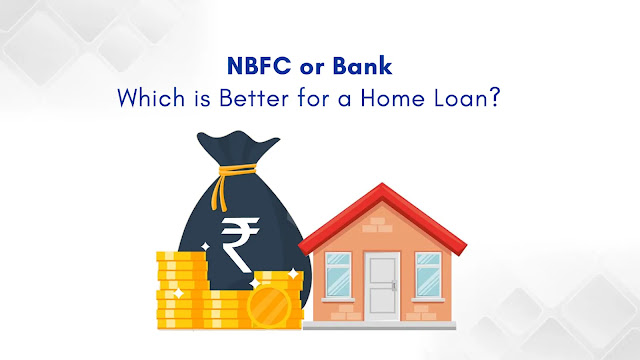NBFC or Bank: Which is Better for a Home Loan?
When it comes to securing a home loan, borrowers have multiple options, with banks and Non-Banking Financial Companies (NBFCs) being the most common. Each of these institutions has its own advantages and disadvantages, making it essential for potential homeowners to understand their options before making a decision. In this blog, we’ll explore the key differences between banks and NBFCs, helping you determine which may be better for your home loan needs.
Understanding the Basics
What is a Bank?
A bank is a financial institution that accepts deposits, offers checking and savings accounts, and provides loans, including home loans. Banks are typically regulated by government entities, which ensures they follow strict guidelines to protect consumers.
What is an NBFC?
A Non-Banking Financial Company (NBFC) provides financial services but does not hold a banking license. NBFCs can offer loans, asset financing, and investment products, but they cannot accept demand deposits (like savings accounts). They are also regulated but operate under different guidelines than traditional banks.
Comparing Home Loans from Banks and NBFCs
1. Interest Rates
Banks: Generally, banks offer competitive interest rates for home loans, especially to borrowers with good credit scores. They may provide fixed or floating rates based on market conditions.
NBFCs: NBFCs may have slightly higher interest rates compared to banks, reflecting the increased risk they undertake. However, they might offer promotional rates or special packages that can make them attractive to certain borrowers.
2. Eligibility Criteria
Banks: Banks tend to have stricter eligibility criteria for home loans. They usually require a higher credit score, stable income, and a longer employment history. This can make it challenging for some borrowers, especially first-time buyers.
NBFCs: NBFCs are often more flexible in their eligibility requirements. They may consider borrowers with lower credit scores or those with unconventional income sources, making them a viable option for self-employed individuals or freelancers.
3. Processing Time
Banks: The loan approval process at banks can be lengthy due to rigorous documentation and verification processes. It may take several weeks for a bank to approve a home loan.
NBFCs: NBFCs typically have a faster processing time. Their streamlined processes and lesser bureaucratic hurdles can lead to quicker approvals and disbursals, making them a suitable option for those in urgent need of funds.
4. Customer Service and Support
Banks: Banks usually have a more established customer service framework, providing various channels for support, including branches, call centers, and online services.
NBFCs: While many NBFCs focus on customer service and personalized support, the experience can vary significantly from one company to another. Some may offer a more personalized approach, while others might lack comprehensive support.
5. Loan Products
Banks: Banks often provide a wide range of home loan products, including fixed-rate loans, floating-rate loans, and special home loan schemes for first-time buyers or women.
NBFCs: NBFCs may offer unique loan products tailored to specific borrower needs, such as loans for construction, renovation, or land purchase. Their offerings can be more flexible compared to traditional banks.
Which is Better for You?
When to Choose a Bank:
- If you have a strong credit score and a stable income, you may benefit from lower interest rates and a variety of loan products that banks offer.
- If you prefer a more established institution with comprehensive customer service and a robust support network.
When to Choose an NBFC:
- If you have a lower credit score or are self-employed, an NBFC may provide the flexibility you need to secure a home loan.
- If you require a quick loan approval process and have an urgent need for funds.
- If you’re looking for specialized loan products that cater to specific needs, like construction or renovation.
Final Thoughts
Choosing between a bank and an NBFC for a home loan ultimately depends on your individual financial situation, credit profile, and urgency. Both options have their strengths and weaknesses, so it’s essential to conduct thorough research and consider your priorities before making a decision.
Before finalizing a loan, compare interest rates, eligibility criteria, processing times, and customer service quality from multiple lenders. Consulting with financial advisors or loan experts can also provide valuable insights tailored to your needs. By taking the time to understand your options, you can make an informed decision that aligns with your homeownership goals.
Read more; https://www.aavas.in/blog/nbfc-or-bank


Comments
Post a Comment